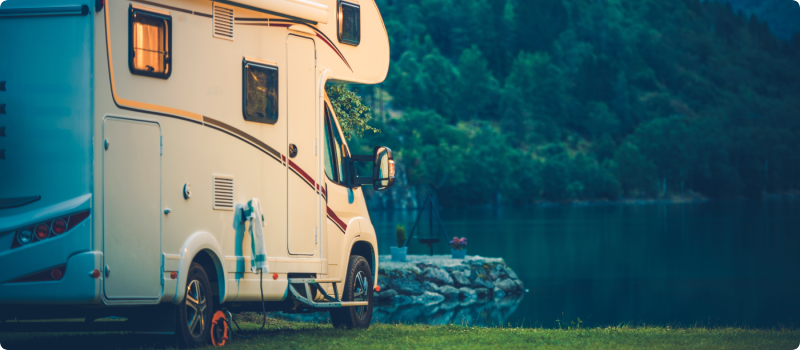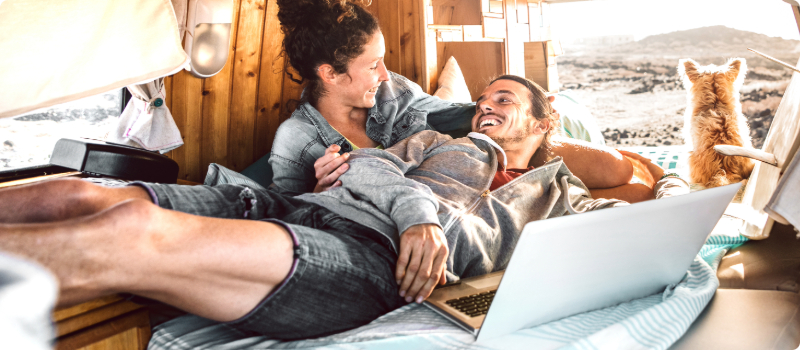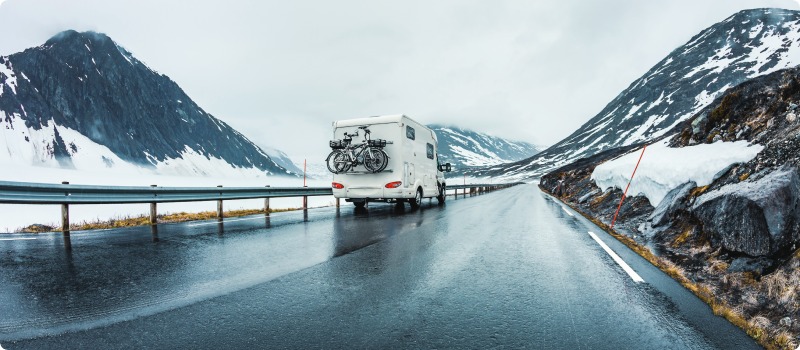How to winterize your RV
Updated June 27, 2024 . AmFam Team
Updated June 27, 2024 . AmFam Team
As you wrap up your summer adventures, you’ll want to consider all that goes into winterizing your recreational vehicle. Winterizing your camper or RV not only saves it from damage — it makes it easier to get started next season! If you decide to do this work yourself, you’ll avoid paying an RV garage, and you’ll have a pretty good idea of what it takes to de-winterize your RV in the spring.
Whether you’ve got a big rig, trailer, fifth wheel or anywhere in between, take a look at these tips to get your ride ready for its winter hibernation.
Freezing temperatures can take their toll on more than just your rig’s water lines. Winterizing is primarily about keeping your water lines from freezing by flushing them and then adding antifreeze in certain places. As you’ll see, there’s really more to it than that.
It costs anywhere from $130 to $170 for a basic winterizing package at an RV dealer, depending on the size and class of your RV. But if you consider that you’ll probably be paying that same cost to de-winterize the RV in the spring, those costs can really add up over the years.
Some RVs are equipped with winterizing controls built in so take a look at your owner’s manual for details before you start. And before you get started get online or stop by your RV dealer to pick up the supplies for winter preparations:
If it’s recommended by your RV’s manufacturer, add RV antifreeze designed for RVs and campers. Follow these steps to get the water out of your RV:

Most new RVs are now equipped with a hot water heater by-pass kit, which prevents the need to fill the tank with several wasted gallons of antifreeze. Don’t have one? Ask your RV dealer to install it. Here’s what you’ll need to do to get antifreeze into your water lines:
Don’t forget to protect your investment from insects, mice and critters. Bugs and rodents can find their way into your RV through small spaces leaving you with an expensive problem the following year. Here’s what you’ll need to do keep pests out of your RV:

Here’s how to manage the motor, batteries and electrical systems before putting your RV away for the winter:
Taking care of your RV tires during the winter months is just as important as attending to them out on the road. Follow your owner’s manual for off-season tire care. Here’s our advice on managing your tires:
Propane can expand and contract when the temperature changes and that can lead to leaks and problems next year. Here are a few things to do to help keep your propane tanks working well:
Much like vacation homes, you should unplug, clean the refrigerator and leave the door open during storage to prevent mold and mildew. Remove any food items, toiletries and medicines. Spend a little time wiping down and cleaning up your RV before you put it to bed for the winter:

Protecting your RV from harsh winter weather can add years to its life. These tips can help you keep your RV’s awning and everything else in great shape while it’s in storage:
It may seem like a lot to do but with a little work, you can add years of enjoyment to your RV or camper. And before you know it — it’ll be time for another season of adventures!
As you’re giving your RV some TLC this fall, remember to check in with your American Family Insurance agent and review your RV coverage options. With a well-crafted policy and a solid winterization strategy, your RV can be protected from the elements and the unexpected — taking you onto the open road well into the future.
This article is for informational purposes only and based on information that is widely available. We do not make any guarantees or promise any results based on this information.